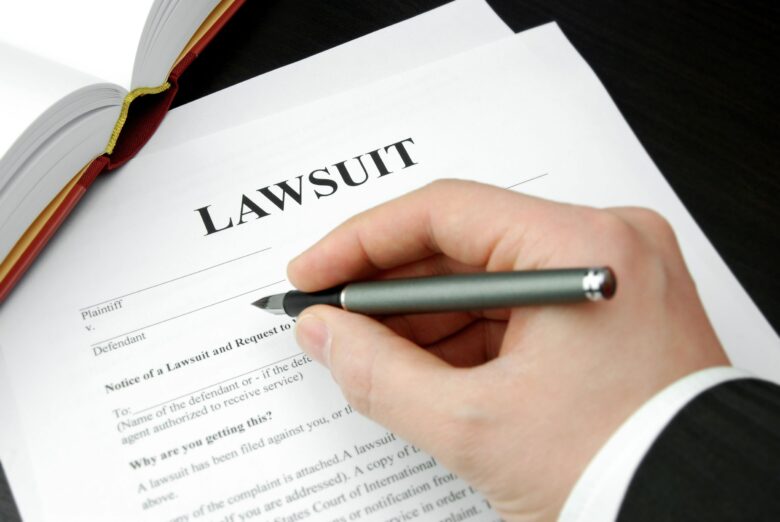For many consumers, falling behind on their credit card payments is a given: consumer debt is just a fact of life, right? After all, everyone has it.
Not so fast. Falling behind on your payments can mean serious consequences ranging from an obliterated credit score to a barrage of calls from collectors. If you let those go unanswered long enough, you may eventually find a process server at your door, lawsuit-in-hand.
Credit card lawsuits are typically filed in state courts. They are increasingly common as more and more consumers fall deeply into credit card debt, and if not handled well, their results can be financially devastating. From wage garnishment (in some states) to seized assets and a permanent stain on your financial record, a civil judgment for credit card debt can permeate every area of your life. If you are in debt, it’s best to avoid getting into this situation in the first place. Resources like cwbdebtrelief.com can help.
As with most situations in life, however, education is key: once you understand how credit card lawsuits work, you can do your part to avoid their devastating consequences. To get started on your self-education, take a look at these ten steps to take if you are sued for your credit card debt.
#1: Don’t panic

A lawsuit is scary, but it is not the end of the world. Not to mention, you have rights, so your creditor (or the government) cannot simply show up at your house tomorrow to take your car and your kids. There is a lot that will happen between the initial service of process and a final judgment.
#2: Figure out who filed the lawsuit
Check the name before the word “Plaintiff” on the complaint, the official legal document stating the claims against you. Note that this may not be the credit card company: typically, when unpaid accounts culminate in litigation, they have already been sold (often multiple times) to debt buyers or collection companies. As such, you may not recognize the name of the party who is suing you. Make sure you do your homework by researching the organization. A simple Google search is enough to get started.
#3: Confirm who is being sued

Look for the name listed after the word “Defendant” on the complaint. This may sound obvious, but make sure it is you! It is not uncommon for the wrong party to be served. Additionally, in some cases, you may be listed along with someone else, like your spouse or a business partner. If that is the case, you will need to contact that person to see if they have more information about the situation.
#4: Look up the law firm representing the plaintiff
This is important, as these are the people that you (or your attorney, if you hire one) will contact with any and all matters related to the lawsuit. Keep their contact information close at hand.
#5: Note the specifics of the service of process

“Service of process” is the legal term used to describe the moment a defendant is presented with the complaint and summons. There are specific requirements involved in service of process and as such, some lawsuits hinge on whether it was done properly. Take note of how, when, and where you were served. Also, keep track of your response deadline, and make sure you reply (or hire an attorney to do so) in advance of that deadline. If you don’t, you will lose your opportunity to contest the lawsuit and a judgment will automatically be entered against you.
#6: Review the allegations in the complaint
These are the legal claims against you. Read them thoroughly, as they will provide critical information about what the other side is arguing. Start to jot down your own informal responses to the allegations. You can present these notes to your attorney at the first meeting. Your attorney will then either affirm or deny each allegation.
#7: Gather your financials

This is the vital part: comb your bank account records, recent pay stubs, tax returns, and other financial documents for any information related to the credit card debt for which you’re being sued. Organize them and present them to your attorney. They may prove critical in supporting your case – or in rebutting the defendant’s.
#8: Be realistic and truthful
When reviewing the complaint and gathering your documents, keep in mind that the defendant may be wrong – but it may also very well be right. Make sure you are reviewing your case clearly and without bias. It is difficult to admit fault, but make sure you enter litigation with a realistic picture of the situation. Burying your head in the sand will not help you.
#9: Contact a lawyer

Although you are not required to retain a lawyer to represent you in court, it is immensely helpful. Engaging an attorney – especially one who specifically represents those who are sued for credit card debts – can help you avoid common pitfalls that can land you in a tough spot. Your attorney will also help you craft an argument and even negotiate a deal with the defendant.
#10: Show up to your court date
Whether you hire a lawyer or decide to handle your case alone, you will likely be required to show up to court at some point (unless you settle the case outside of court). It is vital that you show up. If you don’t, the defendant can win a judgment against you and you will lose the opportunity to contest your case.
When facing a credit card lawsuit, let this be your mantra: don’t just let it slide. Do something. Your financial security is at stake, and so it is in your best interests to act – and to act fast.

